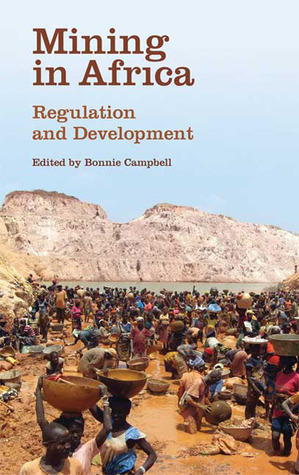What do you think?
Rate this book


288 pages, Paperback
First published January 1, 2009
"The major reasons for the relatively poor labour absorptive capacity include the weak linkages between the mining sector and the rest of the national economy, and the shift from labour-intensive underground mining to capital-intensive surface mining."
"Guinea is the world’s most important source of high-grade bauxite. According to the 2005 estimates of the World Trade Organization (WTO), Guinea has reserves of 20 billion tons of bauxite which are exceptional in both their quantity and quality. The country is responsible for approximately 40 per cent of world commerce of this resource, as well as approximately 40 per cent of the supply of bauxite to the United States."
"...various tax allowances mean that corporate income tax payments by mining companies are minimal, despite their combined turnover in excess of US$600 million in 2002."
"The enclaved nature of mining is perhaps its most central characteristic: these operations are often very poorly integrated into the host countries’ economies."
"The DRC is thought to have most probably 50 per cent of the world’s cobalt reserves, 10 per cent of its copper deposits, 30 per cent of its diamonds, as well as having an important potential for gold, uranium and manganese... The DRC is today the world’s leading cobalt producer."
"In countries with fragile institutions, the mining sector is recognized by many to have produced more misery than wealth for local populations."